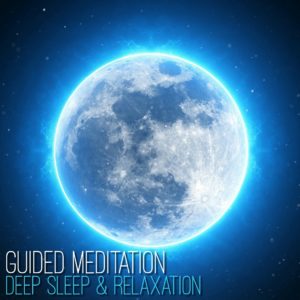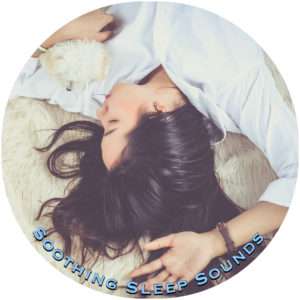Many factors affect our ability to sleep. Some are beyond our control, and it becomes a question of learning how to live with their consequences, but others are related to lifestyle, so we can do something about them. Playing soothing deep sleep meditation music in the background at night is within our control and it’s an easy way to treat a common problem like insomnia with free sleep music available at this music site.
- Age: As we get older, our total sleep time and the period we spend in deep slow wave sleep decreases. Since we are less likely to be woken by external stimuli when we are in deep sleep, the number of times we wake up increases and sleep becomes fragmented. Once we are awake it also takes us longer to fall back to sleep. This may all be caused by lifestyle changes, such as retirement, as well as increased health problems and the side effects of medication, but many people find that they need less sleep as they become older, too. Women may experience night sweats and poorer sleep overall with the onset of the menopause.
- Medical disorders: Those that affect sleep include apnea, when a person’s airway becomes blocked or obstructed, resulting in shallow breathing or even a temporary stop in breathing, which disrupts sleep, mental-health disorders such as depression and anxiety, obesity, and pain.
- Work: Shift work can be particularly disruptive, but working long or irregular hours can adversely affect the body’s natural rhythms.
- Environment: This might be a room that is too warm, external noise (airplanes, neighbors, traffic), or perhaps a snoring partner or one who also has difficulty sleeping.
- Travel: Crossing time zones disrupts our internal body clock, which regulates sleep and waking.
- Stress: This could be caused by relationship problems, work (or lack of work after retirement), bereavement, and young children, among other factors. Worrying can keep us awake and stress degrades melatonin, which is essential for sleep.
- Insomnia: This condition is when you have trouble falling asleep or staying asleep, when you wake very early, and/or when you don’t feel satisfied with the quality of your sleep. If this persists for a month or more, it becomes a chronic condition. People experiencing insomnia often feel that their mind is racing, and get caught up in spirals of worry and negative thinking. This state of arousal keeps them awake. What we experience may vary according to age. Adolescents are more likely to have problems falling asleep; having trouble staying asleep, or waking very early, is more common in older people. Although we may think of insomnia as being a nighttime problem, it’s actually a 24-hour condition. When we don’t sleep well at night, in the daytime we tend to experience fatigue, lack of energy, sleepiness, decrease in concentration and/or memory, and disturbances in mood and motivation. Insomnia is one of the earliest and most common symptoms of stress, and it is also associated with pre-existing conditions such as anxiety, depression, and pain. In addition, if you suffer from these conditions you are more at risk of insomnia. Because of the way sleep, pain, and psychological distress are interlinked, combined approaches to treatment are more successful and therefore recommended. That is one reason why mindfulness-based approaches may be particularly helpful. In the UK, 1 in 3 adults reports problems sleeping. Insomnia is the most common sleep complaint in the USA and affects as many as 30 million people (just over 1 in 10 adults). The cost in terms of the productivity of the American workforce is estimated to be around $63.2 billion, and consumers spend another $32 billion on sleep-aid products. Research shows that regularly restricting our sleep by an hour has a negative impact on our attention, reaction times, mood, and sleepiness, so allowing just one hour more for sleep can make a difference to how we feel, as well as have long-term benefits. An easy and cheap treatment for insomnia is deep sleep meditation music, specifically soft instrumental and ambient music with delta brain waves. Play free sleep music and download mp3 music for a good night sleep at this music website.
GOOD SLEEP ROUTINE
Although we can feel powerless in the face of poor sleep, there are some simple changes we can make to ensure that we are supporting rather than undermining our body’s internal sleep systems. People commonly report that implementing good sleeping habits is helpful. However, if you find your sleep does not improve despite making and maintaining lifestyle changes, it is recommended that you consult your physician. Make sleep a priority—remind yourself that it is as important as exercising and eating well.
- Cool down: Body temperature plays an important role in sleep. We fall asleep as our body temperature drops, and a lower body temperature also helps us to stay asleep before it begins to rise in the early hours as we waken. You can encourage a drop in body temperature deliberately by taking a hot bath or shower about an hour before bedtime and then making sure your environment is cool (about 63ºF/17ºC). As the body cools, you will begin to feel sleepy. Ideally, exercise no less than 4 hours before going to bed, to avoid elevating your core temperature.
- Keep to a regular schedule: Stabilize your circadian rhythm by going to bed and getting up at the same time —even at weekends and when on vacation.
- Go to bed when you are sleepy: Listen to your body, and go to bed when you are sleepy. Likewise, don’t go to bed before you are sleepy.
- Avoid stimulants: Alcohol, caffeine, nicotine, and other stimulants are best avoided in the evening and perhaps even in the afternoon. Notice how you are affected. It is important to check ingredients—you may be surprised how prevalent caffeine is. It can be found in chocolate, many sodas, and even energy drinks.
- Notice what you eat: Certain types of food eaten too near bedtime can affect your sleep, but they can affect everyone differently, so if you think food may be a factor pay attention to what you eat.
- Avoid trying to sleep: Actively trying to fall asleep will only make you more awake, particularly because you may begin to feel anxious that you are not falling asleep. If you are awake, be awake. Read, get up, meditate, or do some yoga or other calming activity.
- Reduce screen time: Avoid screen time (including television and cellphones) an hour before bedtime, if possible.
- Protect your wind-down time: Notice what helps you to move from the busyness of the day to winding down toward bedtime. Avoid or keep to a minimum activity that keep you buzzing. However, notice if there is a sense of striving when it comes to doing particular activities or behaving in a particular way, with the expectation that they will lead to a good night’s sleep.
- The simplest and most effective tip to fall fast asleep is to play therapeutic music made for sleeping, mediating and relaxing. Deep sleep meditation music with delta brain waves for deep relaxation and meditation is a very peaceful soothing sound made to make you fall fast asleep, it should at least make you unwind, de-stress and to feel at ease during bedtime. Our unique mp3 music downloads and free sleep music is composed of gentle sounds like piano, guitar and flute music with soothing nature sounds. The most popular and soothing sounds from nature are relaxing ocean waves, waterfall, rain and other splashing, pouring and dripping water sounds. However, don’t spend too long in bed if our mood is low, we may retreat to bed rather than face the world. However, going to bed too early means repeated awakenings and a much shallower sleep, and we thereby miss out on restorative slow wave sleep. Also the sleep environment should be in a cool, dark room that is free of technology and has a comfortable bed. Turn any clocks to the wall to avoid watching the minutes in the early hours. Calming soft music is therapeutic and our deep sleep meditation music is a great aid to improve your overall health, cognitive, emotional and physical needs. Relaxing soothing music can do much more for you than just put you in a deep slumber, there are incredible health benefits for those who regularly listen to healing delta brain waves. Music and nature sounds can positively affect the automatic nervous system, the part of the nervous system responsible for controlling our brain function, blood pressure and heart. It also effects the limbic system, the part of the brain that is responsible for feelings and emotions. Both these systems react successfully to deep sleep meditation music. When you hear relaxing instrumental or ambient music your heartbeat and blood pressure slows down to the sound of the music. Besides the incredible relaxing effects on the body, the therapeutic sound reduces mental tensions as well. Listening to free sleep music regularly is very beneficial for the mind body and spirit, due to the brain releasing endorphins, which helps to prevent physical and mental pain, making it easier to fall into deep sleep.









































